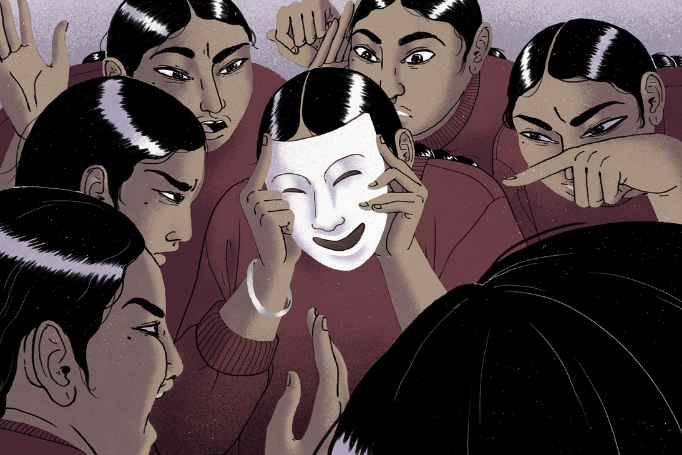Have you ever known someone who always has something to say? Someone who always manages to sneak in that you scored lower on a test than them? It’s even worse when you score a lot better than they predicted, but they don’t believe you. At some point, you do not believe it yourself. You question whether or not the high scores you received were a fluke or not. In fact, you may start to think that you will not continue to receive such high scores.
Once you start spiraling it becomes hard to stop yourself. You begin to question whether studying is worth it or not because you’ll fail anyway. While sometimes, for specific classes, failure is to be expected. Most of the time it was not very good for me to assume that I would fail. I hated the saying “If you are the smartest person in the room, you’re in the wrong room.” I know that being the smartest person in the room limits you in some ways and that “someone will always be better than you,” but it irritated me that being in the right room made me feel lesser. Being in the “right” room made me feel as though I didn’t belong in any room at all.
To be honest, I was not going to write an article, but a recent event inspired me. Last week PSAT scores came out, and I anxiously waited for my Spanish class to end. I was going to open up my score as soon as I left my class. I held my breath and opened up my score. I scored…badly. Well, not that badly. However, to me, it felt embarrassing to tell my score to others. Sadly, at my school getting asked about your score is unavoidable. A few close friends asked me, but then I saw that “they” were approaching me. A friend of mine, of course until anything academic was part of the conversation. I was already irritated because I knew where this discussion was going.
They did not try to hide their intentions. Instead of a filler conversation leading up to the question they simply asked me. They simply asked what my test score was. I tried to evade the question because I knew what would follow once I gave my response. However, when I could no longer evade the question I simply stated that I did okay. They rewarded me with fake comfort, saying that it was okay that I got [insert score], significantly below the school average, because it was not that bad of a score. Huh?
At the time, I came to the conclusion that I was in denial. I was denying the fact that I did not belong near my peers. I was stupid and had no chance of even doing well on a standardized test. Of course, I was wrong, but I know that this is a common occurrence for any school. Simple statements made by others can affect how you view yourself. That begs the question of how I got out of this predicament.
This is most likely not a common experience for everyone, but for me the idea of not belonging left my body at this point. What filled it instead was annoyance. Why was I allowing someone to cloud my mind with such negative thoughts? Why do simple thoughts affect my way of life? I realized that I was asking myself more unnecessary questions. Instead, I decided to take my school life into my own hands. That started with a change of mindset. Cliche, I know, but it has been helping me. I would advise anyone who is reading this to take on a different perspective of what “belonging” really means. Does it mean that you get good grades? Or does it mean that you can chat with the people next to you over simple topics? It’s up to you to define belonging, but I would advise against feeling like you don’t.
Works Cited:
Opong, Diana, and Sylvie Douglis. “5 Steps to Shake the Feeling That You’re an Impostor.” NPR, NPR, 1 Feb. 2021, www.npr.org/2021/01/22/959656202/5-steps-to-shake-the-feeling-that-youre-an-impostor.

 Challenging the Claims Against Artificial Intelligence: A Debate-Style Analysis
Challenging the Claims Against Artificial Intelligence: A Debate-Style Analysis